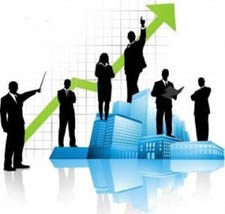 13th petrol price hike in 14 months?
13th petrol price hike in 14 months?
Insensitive UPA targets common man?
By Ravi Shanker Kapoor?
Duplicity having become the defining feature of the ruling United Progressive Alliance (UPA), it was hardly surprising to see the shenanigans of its functionaries in the wake of the recent petrol price hike. And it also exposed the chicanery of the self-appointed champions of the aam aadmi—that is, members of the Sonia Gandhi-led National Advisory Council (NAC).
Prime Minister Manmohan Singh led the brigade to convince the nation that petrol prices have been deregulated and, therefore, the government cannot be held responsible for the costlier petrol. Speaking to reporters on the sidelines of the G-20 deliberations in Cannes, he said, “We must move in the direction of decontrolling more prices. I have no hesitation in saying markets must find their own levels.”
Finance Minister Pranab Mukherjee also wants us to believe that the decision to increase fuel price was taken by state-run oil marketing companies (OMCs). “This is the decision in their domain.” It’s easier to believe the fairytales than to accept that our public sector undertakings (PSUs) are capable of taking such decisions without the consent of, if not directive from, the government.
Anybody who knows even an iota about the Indian economy is aware of the fact that PSUs are used to further political and other non-economic purposes. This explains why petroleum price hikes are decided by politicians after examining the political fallout. But an effort is being made to prove the opposite. So, Indian Oil Corp (IOC) chairman RS Butola said, “As petrol is de-regulated, it is up to the OMCs to increase or decrease the prices, there is no compensation from the government if there are under-recoveries.”
The three OMCs—IOC, Bharat Petroleum Corp, and Hindustan Petroleum Corp—announced on November 4 to increase prices of petrol by Rs 1.80 a litre. Now, it costs Rs 68.64 in the national Capital, Rs 73.81 in Mumbai, Rs 72.73 in Chennai, and Rs 73.15 in Kolkata.
The Petroleum Ministry explained the rationale of hike in a statement: “The average price of Indian basket of crude oil, which was $85.09 per barrel in 2010-11, has now increased by 30% and the average price in the current financial year is around $110 a barrel.” Further, it said, “the rupee has depreciated from 45 a dollar to over 49 per dollar in recent months. The under-recoveries of OMCs increase by about Rs 8,000 crore annually on account of every Re.1 depreciation.”
According to the ministry’s calculation, the total under-recovery of oil PSUs for the current fiscal is expected to be around Rs 1,32,000 crore, as compared to Rs 78,190 crore in 2010-11.
Nobody disputes these facts and figures, but it is also true that petrol is heavily taxed in India. Owing to its mindless populism, the UPA has badly strained the public exchequer. Unsurprisingly, it is not in a position to reduce the taxation burden on the petroleum sector. It is also unable to explain why the man on the street is groaning.
Then there is the issue of inefficiency. As Chief Economic Adviser with the Finance Ministry Kaushik Basu said on November 5, “The PSU oil marketing companies are inefficient and there is plenty of scope of improving the margins through better operations.”
Bad policies and gross incompetence result into awkward political posturing. So, Trinamul Congress boss and West Bengal Chief Minister Mamata Banerjee, who thinks that she is divinely ordained to redeem the poor, threatened to quit the ruling alliance if there was no rollback. Mukherjee made it clear that she was part of the Empowered Group of Ministers (EGoM) that had okayed petrol price deregulation in its meeting on June 28, 2010.
Another loud champion of the aam aadmi is NAC Member and Former Planning Commission secretary N.C. Saxena. And what does he do? Oppose the anti-people move? No, the Sonia Gandhi loyalist supports the preposterous increase in petrol prices: “The impact of hike in petrol prices on inflation will be marginal. Our transport system entirely depends on diesel. Petrol is consumed by 5 per cent of India’s population. They are the people who are influential, they are vocal but their number is very small.”
I don’t know where he gets his numbers from. According to the Union Ministry of Road Transport & Highways, there were 45 two-wheelers and eight cars for per 1,000 people in 2004-05. In the last seven years, the numbers have grown considerably. Besides, all of us see humble folks like electricians, plumbers, and slum-dwellers using petrol vehicles. In the NAC’s perverted perspective, however, all of them are “influential” people.
The petrol price hike once again shows how policy perversions have infected body politic. The victim is aam aadmi.?
















Comments